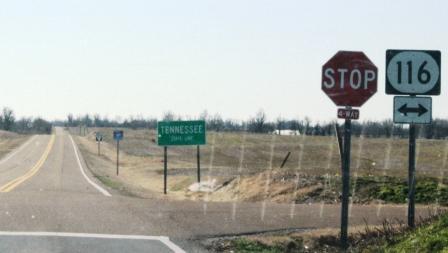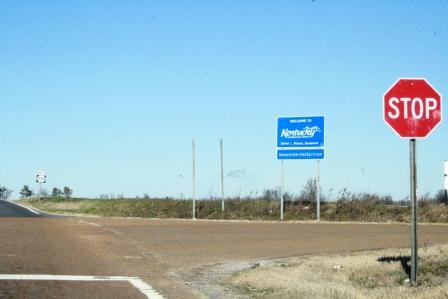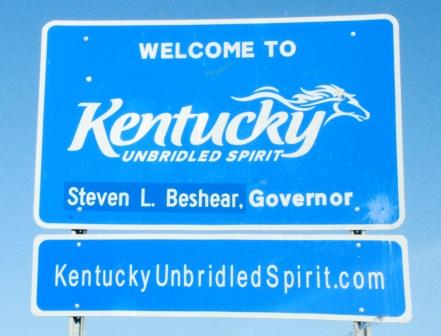Ivan Potter
Wednesday, March 14, 2012 3:07 pm
In stunning bright sunlight, the four points of the compass (North, South, East, West), were held in hostage to complete silence. Only the wind made a noise. In the realities of rural geography, I stood at the westernmost border crossing between two Kingdoms of Political Realms called Kentucky and Tennessee.
Nothing moved. Only the wind made the scene seem real and not a part of some Hitchcock movie. With my camera I scanned the area searching for digital gold.
With luck I found the inner spirit of this scene as man and nature comes together to lay claim to the same spatial point on earth. As in the science fiction movie, Highlander, the quote of “THERE CAN ONLY BE ONE” haunted me at this moment.
Was it man or nature who owned this point of geography? This view? This perspective?
My answer is that man had only one percent of impact upon this scene. That would be (1) the space devoted to asphalt and (2) the five signs standing near the cross roads.
The Tennessee sign was direct and strictly business. It told you that past this point, you were in the state of Tennessee. Framed behind this sign were acres and acres of farm land.
On the Kentucky side of the state line highway were four signs. The largest was “Welcome to Kentucky.” The tag line of Unbridled Spirit left many scratching their heads as to the exact meaning of these words. Just below this official state sign were two smaller signs directing you down the road to a local Baptist church.
Across th
Left unseen at this intersection between these two states was the 12 foot wall of distrust; a not being from here feeling, intolerance, progress vs. poverty; and isolation vs, connection to the world.
The 18 miles of distance between Clinton Kentucky (pop. 1200) to Union City Tennessee (pop. 10,500) tell the story of how people in this remote part of Kentucky will drive 45 miles to Paducah to shop rather than 18 miles to Tennessee for their shopping.
These shoppers want to shop in their own state. Somehow traveling down to Union City, Tennessee seems downright unpatriotic. In these shoppers exists a mental state of denial in sharing culture or history. For these people, the “wall” is there to keep the two away from each other.
After all, Big Blue (UK) and Big Orange (UT) rule in these parallel kingdoms.

